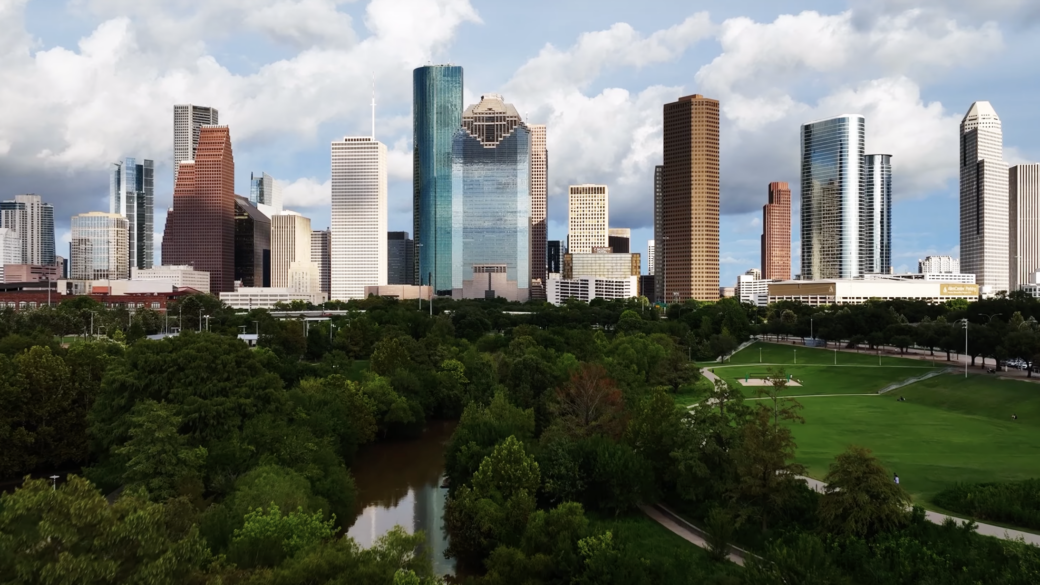Worst Things About Living in Houston
Houston, the expansive urban core of Texas, is celebrated for its vibrant culture, robust economy, and diverse population. However, residing in this city presents a series of challenges and downsides. If you are a prospective homeowner or renter considering this city as your future abode, this guide will assist you in comprehending the 10 worst things about living in Houston, allowing you to make informed decisions based on various crucial factors.
10. Traffic Congestion
Traffic is a daily challenge for Houston residents due to its size and reliance on cars. The city’s streets and highways often become jammed with vehicles during rush hours, causing irritation and delays. A classic example is the lengthy commute you can anticipate if you work downtown but reside in the suburbs. Few public transportation options make this problem worse, forcing most people to drive.
The stress and time wasted due to these traffic issues can substantially impact one’s quality of life, productivity, and overall satisfaction with life in Houston. While seeking alternative routes and scheduling travel outside of peak hours may offer some relief, traffic congestion remains a persistent concern for many Houstonians.
9. Hot and Humid Climate
Houston is known for its hot and humid climate. The city endures long summers where temperatures frequently surge beyond 90 degrees Fahrenheit, accompanied by elevated humidity levels that intensify the discomfort. These weather conditions can make outdoor activities and daily tasks difficult. For those unaccustomed to this kind of climate, it can also pose health risks, including heat exhaustion and dehydration.
The extreme heat also leads to higher air conditioning expenses as residents seek refuge from the blistering temperatures. While Houston does experience periods of pleasant weather, the extended, hot, and humid seasons can serve as a substantial deterrent for prospective residents assessing the city’s livability.
8. Flooding Issues
Houston’s geographical location renders it susceptible to recurrent flooding, a significant concern for both homeowners and renters. The city’s flat topography, clay soil, and proximity to the Gulf of Mexico, all contribute to this issue. As evidenced in the aftermath of Hurricane Harvey, Houston’s infrastructure often proves inadequate for handling heavy rainfall and storm surges, resulting in widespread damage and displacement.
Residence in Houston is more expensive and complicated because flood insurance and home modifications are required for flood-prone properties. Furthermore, the emotional and financial toll of recovering from flood damage can be profound, casting a shadow over the many positive aspects of life in this dynamic city.
7. High Crime Rates
Houston has its share of safety concerns, with relatively higher crime rates compared to some other cities. Instances of property crime, burglary, and theft are prevalent, demanding residents take additional precautions to safeguard their homes and belongings. This might include investing in advanced home security systems or choosing residences within gated communities in certain neighborhoods to mitigate these risks. Violent crimes are concentrated, but they create a sense of insecurity.
While many parts of Houston are safe and thriving, potential residents should conduct thorough research on neighborhoods and consider crime statistics when deciding where to live, as safety is a paramount concern when choosing a place to call home.
6. Air Quality Concerns
Houston’s industrial sector and reliance on automobiles are detrimental to the city’s air quality. Asthmatics in the area are particularly vulnerable to the adverse effects of air pollution and smog. Additionally, oil refineries and chemical plants increase city pollution.
Prospective residents, especially those who are sensitive to air quality issues, may encounter challenges when considering Houston as their place of residence. Being mindful of the air quality index and planning outdoor activities when conditions are favorable becomes essential for maintaining one’s health in this environment.
5. Lack of Zoning Laws
Houston’s unique lack of traditional zoning laws has led to more chaotic urban development. This means that residential areas may be near commercial and industrial sites, which can cause noise, traffic, and odors from factories.
One instance is the presence of high-rise buildings next to single-family homes or factories in residential neighborhoods. Lack of zoning regulations may affect property values, quality of life, and resident satisfaction. Prospective homeowners and renters should thoroughly assess the surrounding areas of their desired location to ensure it aligns with their lifestyle and expectations.
4. Expensive Home Prices and Rent
The real estate market in Houston can be quite intimidating for potential homeowners and renters. Acquiring or renting property in sought-after neighborhoods often comes with a hefty price tag, requiring significant financial commitment and planning. Some areas offer cheaper housing, but it may come with longer commutes, lower safety, or less desirable surroundings.
The financial burden of high living costs can be considerable, underscoring the need for individuals to thoroughly evaluate their financial capacity when contemplating a move to Houston. The real estate market in this city is also affected by economic cycles and the oil industry, making home buying and renting more complicated.
3. Pests and Allergies
Pests like mosquitoes, cockroaches, and rodents thrive in Houston’s humid climate. In addition, the prevalence of mosquitoes in the city as a result of the flooding raises the danger of mosquito-borne illnesses among the local population. To address this, it’s often essential to employ regular pest control services and maintain a clean living space.
Furthermore, Houston’s lush vegetation contributes to high pollen levels during certain seasons, posing challenges for individuals with allergies. Dealing with both pests and allergens may require additional attention for those who prioritize health and comfort in their living environment.
2. Limited Public Transportation Options
Houston’s public transportation system is somewhat lacking in comparison to other major cities, making it less convenient for those without personal vehicles. The available services, primarily buses and a limited light rail system, might not provide comprehensive coverage or frequency to meet everyone’s needs effectively.
This limitation often necessitates reliance on cars, contributing to the already mentioned traffic congestion. The inadequate public transportation infrastructure can be a significant inconvenience, impacting mobility, accessibility, and the ease of navigating the city for work or leisure without a personal vehicle.
1. Vulnerability to Hurricanes
Houston’s proximity to the Gulf of Mexico makes hurricanes a major concern. Powerful winds and heavy rainfall from these natural disasters cause flooding and property damage. The post-hurricane recovery process can be prolonged and emotionally taxing, with residents grappling with service disruptions, property repairs, and community-wide rebuilding efforts.
When deciding whether Houston is a good place to live, hurricane risk, emergencies, evacuations, and the uncertainties of living in a hurricane-prone area must be considered.
Conclusion
Houston’s culture, economy, and diversity make it a vibrant city. However, living in this bustling city requires careful consideration of the many challenges residents may face. From natural disasters such as hurricanes and flooding to urban concerns like crime rates and limited public transportation, life in Houston presents a range of difficulties.
The suitability of Houston as a place to call home will hinge on each individual or family’s priorities, their ability to tolerate risks, and their adaptability to these circumstances. With a thorough understanding of the potential drawbacks, those looking to move here can make informed decisions in harmony with their lifestyle preferences and ambitions.


